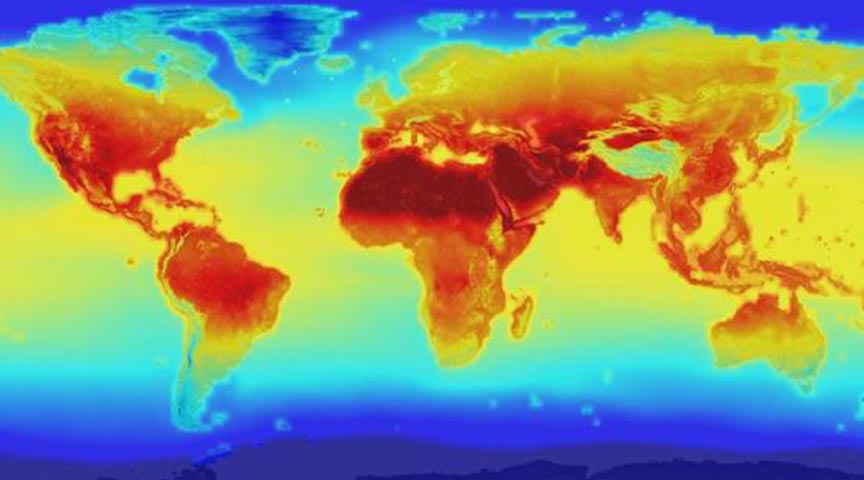The CBC weighs in on one of this blog's perennial topics:
Going by the sun's position in the sky, Saskatchewan should be on mountain time, the same as Alberta. The border city of Lloydminster gets it right and uses mountain time but the rest of Saskatchewan is effectively on daylight time year round, while the province says it's on standard time.
Lots of places do the same, and some by more than an hour.
And Newfoundland, where the clocks are 30 minutes ahead of the ones in most of Labrador and the rest of the Atlantic time zone, can claim to be in minute-sync with all sorts of places.
The 30-minuters added another one to their list this year.
They also have a listicle of facts about daylight saving time, for those who are not already completely exhausted by this topic.
No, not Thanksgiving; the time of day right now in Turkey. Even though I follow time zones pretty carefully, I really can't tell you what time it is right now in Ankara, and it seems no one else can, either:
Following a decree originating from the country’s President Recep Tayyip Erdoğan, Turkey’s government has officially delayed the start of daylight saving by two weeks. Like the rest of Europe, the country was supposed to turn back its clocks in the early hours of Sunday, October 25. Elections coming up on November 1 prompted the move, as the government reckoned that more evening light might ensure a better turnout.
But even in a country with a tradition of occasionally delaying daylight saving a day or so, the two-week delay has come across as more than a little Pharaonic in its ambition. There’s another problem: no one seems to have informed the country’s automatically adjusting clocks. This means almost every cellphone and computer jumped out of sync on Sunday morning, causing minor chaos as Turks struggled to work out whether their clocks had changed automatically or not. On Twitter the hashtag #saatkac—“What’s the time?”—trended as people reveled in Erdoğan’s King Canute moment.
The IANA Time Zone Database pushed out a change on October 1st. While some sites, including this blog and Weather Now, updated our copies of the database immediately, apparently not everyone else has. Typically it takes a few weeks to get changes pushed to millions of cell phones.
This is a minor, but telling, example of how authoritarian governments encourage incompetence. If Donald Trump gets elected president, expect this sort of thing to happen here.
As I mentioned yesterday, the European Court of Justice ruled yesterday that the US-EU Safe Harbor pact is illegal under European law:
The ruling, by the European Court of Justice, said the so-called safe harbor agreement was flawed because it allowed American government authorities to gain routine access to Europeans’ online information. The court said leaks from Edward J. Snowden, the former contractor for the National Security Agency, made it clear that American intelligence agencies had almost unfettered access to the data, infringing on Europeans’ rights to privacy.
The court said data protection regulators in each of the European Union’s 28 countries should have oversight over how companies collect and use online information of their countries’ citizens. European countries have widely varying stances toward privacy.
The Electronic Frontier Foundation examines the implications:
[I]f those reviews [of individual companies' transfers] continue to run against the fundamental incompatibility of U.S. mass surveillance with European data protection principles, the end result may well be a growing restriction of the commercial processing of European users' data to within the bounds of the European Union.
That would certainly force the companies to re-think and re-engineer how they manage the vast amount of data they collect. It will not, however, protect their customers from mass surveillance. The geographic siloing of data is of little practical help against mass surveillance if each and every country feels that ordinary customer data is a legitimate target for signals intelligence. If governments continue to permit intelligence agencies to indiscriminately scoop up data, then they will find a way to do that, wherever that data may be kept. Keep your data in Ireland, and GCHQ may well target it, and pass it onto the Americans. Keep your data in your own country, and you'll find the NSA—or other European states, or even your own government— breaking into those systems to extract it.
Harvard law student Alex Loomis highlighted the uncertainties for US-based companies:
But ultimately it is still hard to predict how national and EU authorities will try to enforce the ECJ decision in the short-run because, as one tech lobbyist put it, “[c]ompanies will be working in a legal vacuum.” Industry insiders are already calling for more guidance on how to act lawfully. That’s hard, because the EU Commission’s decision is no longer controlling and each individual country thus can now enforce EU law on its own. Industry experts suggest that the turmoil will hurt smaller tech companies the most, as the latter lack separate data centers and accordingly are more likely to rely on transferring data back to the United States. As I pointed out last week, that might have some anticompetitive effects.
In short, data transfers between the EU and US are now a problem. A big one. Fortunately at my company, we don't keep any personal information—but we still may have a heck of a time convincing our European partners of that, especially if Germany and France go off the deep end on privacy.
Senate Democrats blocked a Republican move to kill the Iran nuclear deal, meaning it's pretty much done:
The outcome means the disapproval resolution will not reach Obama's desk, and the nuclear deal will move forward unchecked by Congress.
Senate Republicans are vowing they'll keep on fighting. House Republicans also are still
maneuvering to find a way to stop the international agreement to curb Iran's nuclear program. But those efforts seem unlikely to produce results.
The deal, which Israel's right-wing government vehemently opposes, is clearly in U.S. interests.
Today, Her Majesty Elizabeth the Second, by the Grace of God, of Great Britain, Ireland and the British Dominions beyond the Seas Queen, Defender of the Faith, has just moments ago become the longest-reigning monarch in British English history:
At exactly what time Her Majesty out-reigns her great-great grandmother is not precise, due to the uncertainty of the timing of the death of her father, George VI, who died in his sleep. But Buckingham Palace has estimated, to be absolutely safe, she will pass Victoria’s 23,226 days, 16 hours and 23 minutes at around 5.30pm*. That calculation assumes George VI’s death was around 1am, and factors in extra leap days in the reigns of “Elizabeth the Steadfast”, as she has been described, and the Queen Empress.
There will be no bonfires on Wednesday, however. Palace aides have reminded the press of the sensitivity of the occasion given it owes much to the premature death, at the age of 56, of the Queen’s father. “While she acknowledges it as an historic moment, it’s also for her not a moment she would personally celebrate, which is why she has been keen to convey business as usual and no fuss,” said one.
The only living monarch to out-reign the Queen is Thailand’s King Bhumibol Adulyadej, who is two years younger but has reigned for six years longer. However she beats him, and all other contenders, on one matter. According to Guinness World Records, she holds the world record for most currencies featuring the same individual.
* 5:30pm BST is 11:30am CDT, or right about now.
Prince Charles, her heir-apparent, is 66, and also holds the record for being the longest-waiting heir-apparent in English history.
Every year, Beloit College in northern Illinois prepares its "Mindset List," trying to prepare the faculty for the way the new first-years think. This year's class:
...are mostly 18 and were born in 1997.
Since they have been on the planet:
3. They have never licked a postage stamp.
6. Hong Kong has always been under Chinese rule.
17. If you say “around the turn of the century,” they may well ask you, “which one?”
32. The Lion King has always been on Broadway.
47. They had no idea how fortunate they were to enjoy the final four years of Federal budget surpluses.
50. ...and there has always been a Beloit College Mindset List.
This year's list also includes some translations from 2015-era teenager argot into standard English.
New Zealand is voting over the next year to replace its national flag:
It’s not everyday that a nation chooses a new flag by its own volition, with the support of the voters, without any drastic regime changes. New Zealand is doing exactly that. With the Flag Consideration Project, the Kiwis are trying on a new look.
In an open letter to the peoples of New Zealand, the panel for the Flag Consideration Project introduced 40 finalist designs for an all-new flag. Voters will decide what happens next in two referendums: one in November–December, and another in March 2016.
Here are a couple of the finalists:



While eating lunch, I read this cheerful article from Rolling Stone:
Thanks to the pressure we're putting on the planet's ecosystem — warming, acidification and good old-fashioned pollution — the oceans are set up for several decades of rapid change. Here's what could happen next.
The combination of excessive nutrients from agricultural runoff, abnormal wind patterns and the warming oceans is already creating seasonal dead zones in coastal regions when algae blooms suck up most of the available oxygen. ...
These low-oxygen regions could gradually expand in size — potentially thousands of miles across — which would force fish, whales, pretty much everything upward. If this were to occur, large sections of the temperate deep oceans would suffer should the oxygen-free layer grow so pronounced that it stratifies, pushing surface ocean warming into overdrive and hindering upwelling of cooler, nutrient-rich deeper water.
Enhanced evaporation from the warmer oceans will create heavier downpours, perhaps destabilizing the root systems of forests, and accelerated runoff will pour more excess nutrients into coastal areas, further enhancing dead zones. ...
Evidence for the above scenario comes in large part from our best understanding of what happened 250 million years ago, during the "Great Dying," when more than 90 percent of all oceanic species perished after a pulse of carbon dioxide and methane from land-based sources began a period of profound climate change. The conditions that triggered "Great Dying" took hundreds of thousands of years to develop. But humans have been emitting carbon dioxide at a much quicker rate, so the current mass extinction only took 100 years or so to kick-start.
Good thing we don't eat plankton, because there won't be much left in a few decades.
Oh, wait...
The ink on the Iranian nuclear deal isn't dry yet, but already American and European companies are starting to benefit:
Iran plans to buy as many as 90 planes per year from Boeing and Airbus to revamp its antiquated fleet once Western sanctions are lifted, its state news agency IRNA quoted a senior aviation official as saying on Sunday.
"Iran will buy a total of 80-90 planes per year from the two aviation giants in the first phase of renovating its air fleet," said Mohammad Khodakarami, the caretaker director of Iran's Civil Aviation Organization, according to IRNA.
"We will purchase planes from Boeing and Airbus in equal numbers," Khodakarami was quoted as saying, adding that Iran would initially need to add at least 80 planes to its fleet each year. That would mean a total of 300 planes within five years, he added.
So over the next five years, the U.S. and Europe will get a small ($2 billion) bump in GDP. And Iran will have flyable civilian airplanes again, but no atomic bombs. Everyone wins!
So far Chicago has had a milder-than-normal summer, with only a couple of over-32°C days and a lot of rain. Given our greenhouse gas emissions, that will change:
The NASA climate projections offer a detailed view of future temperature and precipitation patterns around the world at a 15.5 mile (25 kilometer) resolution, covering the time period from 1950 to 2100. The 11-terabyte dataset provided daily records and estimates of maximum and minimum temperatures and precipitation over the entire globe. It integrates actual measurements from around the world with data from climate simulations created by the international Fifth Coupled Model Intercomparison Project, or CMIP, which is a standard experimental protocol for studying the output of coupled atmosphere-ocean general circulation models.
The result? Pretty warm:

I won't be around to experience an average annual temperature around 30°C. Unfortunately, given the effects of climate change on our food and water supplies, not many others might be either.